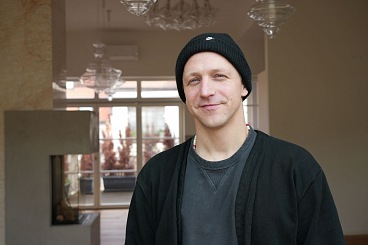UGLY TRUTH: Daring scientist reveals a business with our emotions! Facebook sees through us like an X-ray
This 68-year-old scientist has some balls. Shoshana Zuboff fearlessly attacked the biggest technology companies, revealing how they‘ve turned us into a profitable business. Under the guise of providing their services for free, they get much more information out of us than we like to admit. But the real "fun" begins when these data collectors start exchanging or reselling information.
"They have computer factories where artificial intelligence analyzes our behavior, emotions and thoughts. There, our existence is being turned into a business item for companies to sell, and thanks to that they can predict what we‘re going to do in the coming hours, days or weeks," says Shoshana Zuboff, the woman who has become the terror of Google, Facebook and other Internet giants in the last year.
She gives interviews and lectures on how contextual advertising, cookies and other tweaks that target advertisement, showing us clothing or household items based on our interests or web search, have long been obsolete. Now marketers know our current mood, our future decisions, and they also know when to target us with the ads (down to the hour, or even minute). Yes, not only do they know what we want, but also when we are most likely to actually buy it.
¨Cameras can capture our emotions
How can they find out? Shosana cites the ever-increasing number of cameras in the streets, shops, restaurants and office buildings as an example. These cameras are usually owned by private companies, through which real-time recordings can get in the hands of the aforementioned internet giants. Each person has a huge number of facial muscles hidden under the skin that express hundreds of different gestures and emotional moods, depending on how we feel.
Advanced facial recognition technologies can determine exactly how we feel. They are based on data that we voluntarily publish about ourselves by using, for instance, social networks for free. When was the last time you felt great? Maybe on your last vacation in Greece, from which you posted a story on Instagram? You can be sure that they‘lll find a way to find out. We have become a voluntary source of "raw" information about our lives, from which everyone can "extract" exactly what they need.
EU data protection is powerless
Unfortunately, EU legislation can‘t do much about it, even though it has recently shown great effort in significantly reducing the misuse of personal data. But legislation is always one or two steps behind what is happening in the real world. In short, technologies are evolving too fast. What's worse, a huge number of legal measures only work on paper. A typical example is GDPR, which, for example, allows people to refuse consent to the processing of personal data for marketing purposes.
In theory, it sounds great, but unfortunately the reality is that large corporations (banks, mobile operators or giant technology companies) are in such a strong position that they don‘t have to worry about these measures. It is mainly people who want their services. Banks, for example, routinely require marketing approval before signing a mortgage agreement. If you refuse, though, (to which you are entitled under the GDPR), they won‘t give you any mortgage, even if such a procedure is prohibited by an EU regulation. But do you want to spend years fighting in court rooms, when you need to buy a place to live now?
And it's similar on the internet. Both Google and Facebook have billions in their budgets allocated for possible fines from the European Commission and other institutions. For them, it‘s nothing but an accounting item, because by breaking the rules, they can make countless times more money. In other words, they can wipe their… you know what with EU regulations, and no one will really punish them for it. Consider one of the last fines of the European Commission, which was 2.4 billion euros. But in 2018 alone, Google made 136 billion, and besides, they‘ve taken the fine to court in Luxembourg, which can take years to resolve. Do you think that bothers anyone in management? Except perhaps for the lawyers they hired for it...
She investigated in silence what was going on
But let's go back to Shoshana Zuboff and why she's the first person these giants are afraid of. For several years, she was quietly investigating how Facebook and other technology companies worked, and last year she published a groundbreaking book in which she wrote openly about everything. The Age of Surveillance Capitalism thrilled the professional community, shocked ordinary people and terrified Internet giants. In the book, she explains that there is little left of what we‘re doing or thinking that these companies wouldn‘t know about and couldn‘t monetize. And she shows dozens of examples of what is happening and what awaits us.
On several hundred pages, she describes how technology companies are stealthily pushing the boundaries of what they can afford, meeting little to no resistance. And she indicates that right now, new methods are probably already in the trial period, thanks to which they will be able to see even deeper into our heads, and to achieve this goal, they‘ll use everything that surrounds.
And it won‘t be just about cell phones or smart watches. The first scandals have already proven that some TVs or Barbie dolls can recognize speech and "snitch" to the producers, what we‘re talking about in our homes. Thanks to GPS in mobile phones, we disclose where we are, and through card payments, we reveal what‘s missing in our fridge or when we‘re likely to go shopping. By tuning the radio in the car to a different station, we show what we dislike and how long we‘re willing to tolerate it. And depending on which route we choose in our store when shopping, we reveal how much time we have and whether we get impatient easily.
Monetized regrets
Imagine a scenario that could soon become reality in the Czech Republic... Lately, you‘ve been neglecting your daughter because of work. Moreover, you‘re stressing our about the deadline of your project, so you „slip“ in the evening and yell at her for nothing or slap her without sufficient reason. The next morning, you‘re miserable about it at work and Facebook finds out. For example because you were frowning when you walked through the reception desk in the morning and it was recorded by a camera or the webcam in your computer.
Facebook already knows your emotions and how they manifest perfectly well, so it prepares a strategy for how to use this knowledge and get money from you. Thanks to the "eavesdropping" doll, ite already knows what toy your daughter would like, because she's been talking about it with a friend. And when you let your daughter watch Paw Patrol on Youtube in the evening, an advertisement for that very toy pops up - and she squals. That's how you find out what would make her happy. And while scrolling down your Facebook wall a few hours later, you suddenly notice a special discount offer for exactly the same toy. Because you regret your earlier behavior, you immediately buy it.
It's easy. And this is how it will work with more than just toys: buying a car, planning a vacation, watching movies, casting election votes, investing in a stock exchange, insurance underwriting, drafting a will... We may naively hold on to the thought that our decisions are free, because these companies will ensure that we do. That's why Shoshana speaks of "supervisory capitalism," a time when we can do anything we think of, but in reality, we're not doing anything that wasn't decided for us.
The important thing is that we don't even notice it and it doesn't affect our lives in any way. Which depends on the angle of view…
















